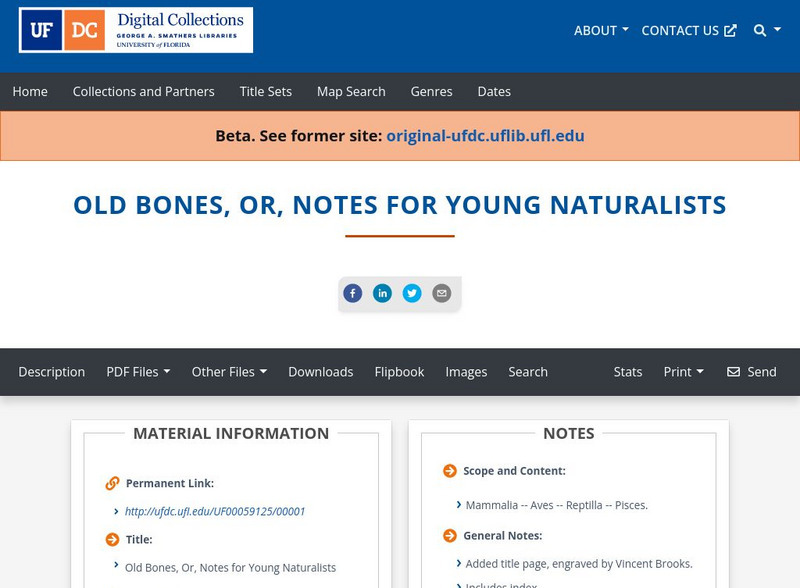NOAA
Understanding Food Chains and Food Webs
Jump into an exploration of marine ecosystems with the first lesson in this four-part series. After first learning about crustaceans, mollusks, and other forms of sea life, young marine biologists view a PowerPoint presentation that...
Curated OER
Invertebrate Diversity
Comparative anatomy prevails in the lesson exploring diversity among invertebrates. Biologists examine physical characteristics of an earthworm from phylum annelida and a meal worm from phylum insecta. They also inspect a cricket and a...
Curated OER
Technology Squares: Mammals
Review basic vocabulary related to mammals. This short quiz game allows students to test their skills and understanding of scientific vocabulary. This game is appropriate for grades 5-7 and covers very basic concepts.
Curated OER
So You Think You're Tough
Fourth graders learn how to classify animals. In this invertebrates lesson, 4th graders discuss how we classify thinks into groups and move into a discussion about classifying animals. Students learn about the differences between...
Curated OER
Animals and Their Coverings
Students investigate the coverings of vertebrates and invertebrates and cold-blooded and warm-blooded animals. In this animals and their coverings lesson plan, students observe displays of different animals and discuss and answer...
Curated OER
Identifying Vertebrates
In this biology worksheet, students look for the answers to how to classify animals. They specifically focus upon the vertebrates while differentiating the characteristics from other organisms.
Curated OER
Through the Eyes of an Owl
Students describe vertebrates in terms of observable body parts and characteristics and describe life cycles of familiar organisms. They identify familiar organisms as part of a food chain or food web and describe their feeding...
Curated OER
An Episode on Australian Animals
Fifth graders identify and analyze various ecological regions of Australia in order to identify more about some of the animals that inhabit the area. Students record information they discover on a chart provided that is assessed at end...
Alabama Learning Exchange
Vertebrates or Invertebrates
Examine the differences between vertebrates and invertebrates as learners conduct Internet research, take an online invertebrate quiz, complete a vertebrate fact sheet, print out pictures of invertebrates they find interesting, and...
Curated OER
Biodiversity
In this biodiversity activity, students sort and classify animals by their observable features using a dichotomous key. Students then respond to questions about complete and incomplete metamorphosis.
Curated OER
Major Phyla of the Animal Kingdom
In this animal kingdom worksheet, students compare and contrast the 10 different phyla including the description and approximate number of species found in each one. This worksheet is a graphic organizer.
Curated OER
Vertebrates And Invertebrates
In this science lesson, learners classify pictures into categories of vertebrates or invertebrates. After a class discussion, students divide into groups, and are given plastic baggies that contain photographs of each. The groups must...
Curated OER
Diversity of Life
Students explore the diversity of life forms and the role that interdependency plays in our world through a mult-segmented unit. This segment introduces the unit.
University of Florida
Baldwin Library: Old Bones, Or, Notes for Young Naturalists by W. S. Symonds
This is an online photocopy of the original text of the children's book Old Bones, or, Notes for Young Naturalists by W. S. Symonds (1861), includes information and illustrations about vertebrates and their fossils.
BiologyWise
Biology Wise: Vertebrates and Invertebrates
The characteristics of vertebrates and invertebrates are described here. Includes a list of examples for each group and a chart highlighting their differences.
















